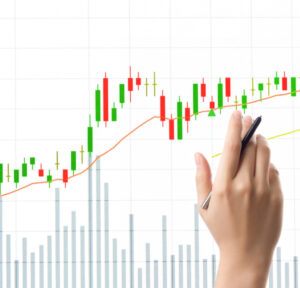The Warren Buffet of India: Find Out How Rakesh Jhunjhunwala Built His Fortune

Rakesh Jhunjhunwala – Overview
Great men come and go; it is a cycle of life – Rakesh Jhunjhunwala was one such man. Jhunjhunwala began his journey on Earth on July 5, 1960. He was born into a Rajasthani Marwari family. His father, a well-respected figure and influence in his life, was a commissioner for income tax.
As a young boy, Jhunjhunwala heard his father’s constant talk about the stock market with his colleagues. This subject caught his attention, which soon developed into a passion for the capital market. With his father’s support, Rakesh bagged a degree as a Chartered Accountant from Sydenham College and later joined the Institute of Chartered Accountants of India.
His trading skills, aggressiveness, wits, and philosophies have earned him names like the Warren Buffet of India, and the big bull of Dalal Street, among others. According to Financial Times, he started his investment journey in college at age 25 with an investment capital of a measly Rs 5000. According to the same article, when he passed, his wealth was exceeding Rs 31,000 crore (Note: 1 crore = 10 million units), which was amassed over a period of 36 years.
He married Rekha Jhunjhunwala and was survived by three children (a girl and twin boys). His love for his wife made him name his asset management firm with his initials and hers to form RARE Enterprise Ltd, from which he made all his trading operations.
India’s Warren Buffet
Rakesh Jhunjhunwala got this name because of the similarities that abound between his stock options and strategies and the stock legend of Berkshire Hathaway.
Rakesh Jhunjhunwala shares Warren Buffett’s enthusiasm for cash on the balance sheet. He was always on the lookout for businesses with significant financial reserves. He adored CRISIL Ltd. for several reasons, one of which was that CRISIL has consistently had fair cash reserves, which has helped them survive short-term liquidity crises.
Rakesh Jhunjhunwala invested heavily in businesses with economic moats. He and Warren Buffett shared this characteristic as well. Numerous businesses with substantial economic moats are included in Rakesh Jhunjhunwala’s portfolio.
The journey
Jhunjhunwala began investing in stocks in 1985 when the Sensex was at 150 points, and he had just 5,000 rupees. By the time he finished his voyage in 2022, the Sensex had risen to about 60,000 points.
According to Economic Times, through his investment in Tata Tea, he earned Rs 5 lakh in profit within the first year of 1986. He paid Rs. 43 for 5,000 shares of the company, which he later sold for Rs. 143 each.
According to the same source, the most successful investment for Jhunjhunwala was the purchase of 8 crore shares of Titan Ltd in 2002–2003. When Jhunjhunwala first purchased the stock, it was selling for approximately Rs 5 as opposed to an average, modern price of Rs 1,751.
His investment in Dalal Street generated Rs 20 to Rs 25 lakhs between 1986 and 1989. Sesa Goa was his subsequent significant investment, which he initially purchased for Rs 28 and afterward increased to a price of Rs 35. The stock soon rose to Rs 65.
Business Today reports that Rakesh Jhunjhunwala controlled 100.7 million shares of Star Health and Allied Insurance Company as of June 2022, totaling 17% of the company’s stock and totaling a staggering Rs 7017 cr.
His other significant equity holdings consist of Rs 853 cr in Fortis, Rs 1,285 cr in Crisil, and Rs 2,255 cr in Metro, a shoe company.
Become an educated trader. Join and learn to apply new skills>>
Yield statistics and portfolio segmentation
Rakesh Jhunjhunwala had 32 stocks in his portfolio as of August 2022, each of which he owned more than 1% of. His devotion to the Tata Company is not news to the market as his largest stock, Titan Company Ltd., is part of the Tata conglomerate. The portfolio of Rakesh Jhunjhunwala, however, contained more than just Tata shares; there was a good balance of primary, midsize, and small-cap stocks. Sector and market cap were not factors in Jhunjhunwala’s portfolio.
Yield Statistics
It is known that Rakesh Jhunjhunwala began trading with Rs. 5,000 in 1985. According to Forbes, he had a net worth of Rs. 50,000 crores at the time of his death. This represents a 37-year compounded annual return (CAGR) of 65%, as reported by Business Standard. According to another account, he is worth Rs 30,000 crore. Even yet, this represents a 62% CAGR.
According to data available to trading marathoners, Mr. Jhunjhunwala’s 62% CAGR makes him the second-most successful investor in history behind Jim Simons. Jim Simons of Renaissance Technologies is marginally ahead of him, having had a 66% return between 1988 and 2018.
With this remarkable CAGR (Compound Annual Growth Rate) of 65%, Rakesh Jhunjhunwala outperforms renowned stock market veterans such as Warren Buffet, George Soros, and others, who have achieved a comparatively lower CAGR of around 20%.
Portfolio Segmentation
A close look at Rakesh Jhunjhunwala’s portfolio reveals the following observations:
- Rakesh Jhunjhunwala’s portfolio was valued at Rs. 31,833 crore as of August 2022. The portfolio consists of a diverse range of investments across 23 different industries. It includes shares of prominent sectors such as banking and pharmaceuticals, as well as lesser-known sectors such as agrochemicals and food oils.
- Mr. Jhunjhunwala showed optimism in the following sectors based on his portfolio spread: jewelry (34.0%), insurance (24.2%), automobile (8.9%), banks (4.6%), and credit rating agency (3.4%).
- Rakesh Jhunjhunwala’s portfolio contained 17.75% of stocks having a market cap of less than Rs 10,000 crore.
Trading lessons to learn from Rakesh Jhunjhunwala
Rakesh Jhunjhunwala was a very wise man when it came to stock trading. His philosophies need no further validation than his life and what he was able to achieve with it. As a young investor looking to make it big with stocks, here are some lessons from Rakesh Jhunjhunwala that may come in handy:
- According to Rakesh Jhunjhunwala, one should concentrate on purchasing the company rather than the stock. This means not focusing too much on the stock’s purchase price rather than the company’s vision and operation.
Instead, concentrate on the company you are purchasing and be willing to pay a little bit more for a company with solid fundamentals.
- Rakesh Jhunjhunwala supports constantly researching a stock independently, even if it might be a part of a trendy buzz.
- Rakesh Jhunjhunwala was a long-term investor. Everything that framed his trading decisions can be tied to long-term returns. His portfolio showcased this well. Jhunjhunwala primarily focused on India’s macros like finance, healthcare, real estate, and construction – which all have a long-term impact on India’s growth rate.
Take your earned knowledge to practice. Sign up to use a free demo account>>
Conclusion
Rakesh Jhunjhunwala once said the reason for his success was that his father indulged his curiosity as a child and always encouraged him to stay curious. This made Jhunjhunwala passionate about impacting India positively, and his passions shone forth in his educational and societal investments.
The life of Rakesh Jhunjhunwala is an inspiration to not only Indians but the global conclave of investors. His passion and optimism about India’s economy are ones he was vocal about in his lifetime and what succeeded him in death.
Jhunjhunwala left a lot of invaluable investment lessons for the younger group coming up and will continue to be remembered for the Midas touch he had in picking stocks.
Disclaimer: Our content is intended to be used for informational purposes only. It is very important to do your own research before making any investment based on your own personal circumstances. You should take independent financial advice from a professional in connection with, or independently research and verify, any information that you find on this article and wish to rely upon, whether for the purpose of making an investment decision or otherwise. Klips does not put available shares or any other underlying asset, but CFD derivatives based in underlying assets.

Learn more, understand the markets
Learn

Top AI Companies to Watch: A Deeper Dive
ByAndreea
 3 min.
3 min.Learn

Charting Your Course to Trading Success with Klips
ByAndreea
 3 min.
3 min.Learn

Navigating the ECB’s Monetary Policy with Klips: Empowering Your Trading Strategy
ByAndreea
 3 min.
3 min.Learn

Harness the Power of Dollar-Cost Averaging on Klips Trading Platform Amidst a Bear Market
ByAndreea
 3 min.
3 min.Learn

Blockchain: The Future of Finance?
ByAndreea
 5 min.
5 min.Learn

AMC stock price – What Influences it the most
ByAdmin
 5 min.
5 min.Learn

What are trading signals?
ByAdmin

Trading

3 popular candlestick patterns for forex trading strategy
ByAdmin
 4 min.
4 min.Trading

Learn how simple forex trading is in South Africa
ByAdmin
 5 min.
5 min.Trading

The Warren Buffet of India: Find Out How Rakesh Jhunjhunwala Built His Fortune
ByAdmin
 7 min.
7 min.
